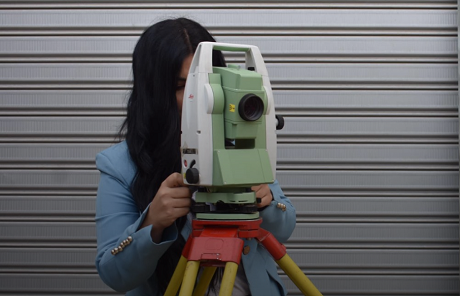Pillars of progress: Strengthening engineer’s expertise in the Kurdistan Region of Iraq

Eager to contribute to the growth of their community, many young people dream of being architects of change – creating a future where their skills and passion shape the landscape of their city. Recognising the potential of engineering graduates, GIZ in partnership with the European Technology and Training Centre (ETTC) and the Kurdistan Engineers Union (KEU), established a platform for continuous learning. The aim: Aligning the skills of local engineers with global industry standards.
The Kurdistan Region of Iraq has witnessed rapid growth in the last two decades and demand for residential and commercial spaces, as well as infrastructure development, is growing. However, political and economic conditions have led to unemployment challenges amongst the youth. To tackle this, GIZ, ETTC and KEU collaboratively designed a tailored training programme to meet the urgent needs of the engineering sector, including wastewater management, solar technology and traffic planning. More than 300 engineering graduates as well as small and medium engineering businesses participated in these courses. Thus, participants could enhance their skills with new, industry-relevant technologies and methodologies.
Sarwah Hidayat, a young architectural engineer, is amongst the participants. Sarwah is currently pursuing her master’s degree, while working at a local environmental organisation. She emphasised the positive impact that the training programme had on her performance at work. Not only has she become more accurate but also more efficient at her job. “I hope that my fellow female engineers continue developing their skills. This way, we make sure that our knowledge is imprinted in the development of the city”, she says.
Facilitating employment through job placement
Recognising the potential of engineering graduates, the programme included job placements. This bridged the gap between the skills of job-seeking engineers and the needs of local firms. During the six-months internship, the junior engineers were able to demonstrate their newly acquired skills. Through the hands-on internship and peer-mentoring, the participants were able to further expand their skills. The majority of participants retained a job upon completion of the internship. Yousif Abdulhaq is amongst the engineers who have secured a job at a company. But this is not all: The project transcended local boundaries. Together with other participants, he visited Germany, where they met with pioneering engineering institutions. They exchanged ideas on cutting-edge engineering technologies and interacted directly with industry experts in areas like highway design, traffic management systems, and sustainable road construction. This experience gave the engineers a global perspective, preparing them for local and international professional environments. Equipped with the right skill set, Yousif is more motivated than ever. While he continues working at the engineering company, the exchange programme has inspired him to learn the German language.
The engineering project has been a constructive effort towards enhancing the qualifications and employability of engineers. It is a practical step within the broader context of regional development, aiming to strengthen technical expertise in the local engineering sector. The outcomes of this project highlight the value of combining local expertise with international standards, a blend that is vital for the ongoing progress of the engineering field in Iraq and beyond.
---
GIZ has supported private sector development and promoted entrepreneurship development since 2017. The training programme for engineers is part of the “Private Sector Development” project, co-funded by the German Federal Ministry for Economic Cooperation and Development and the European Union as part of the Team Europe Initiative #TAEUFIQ.